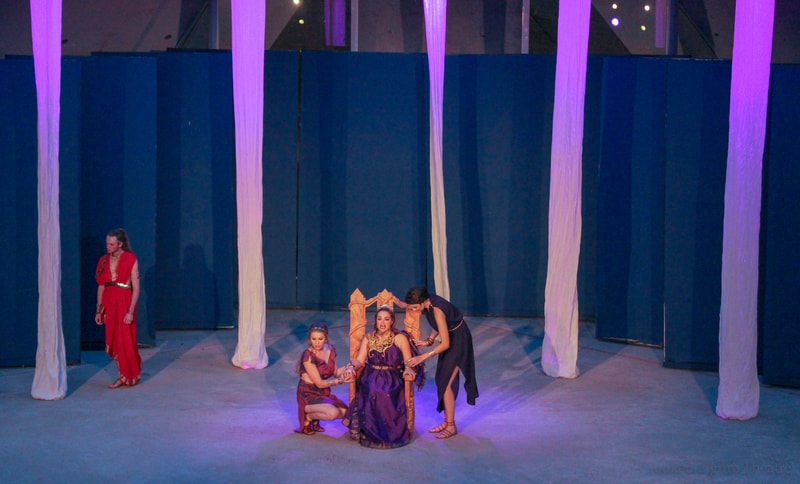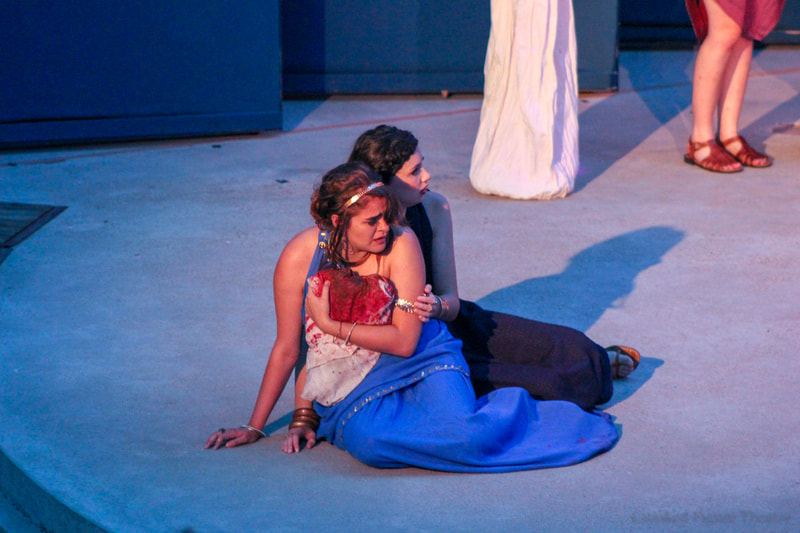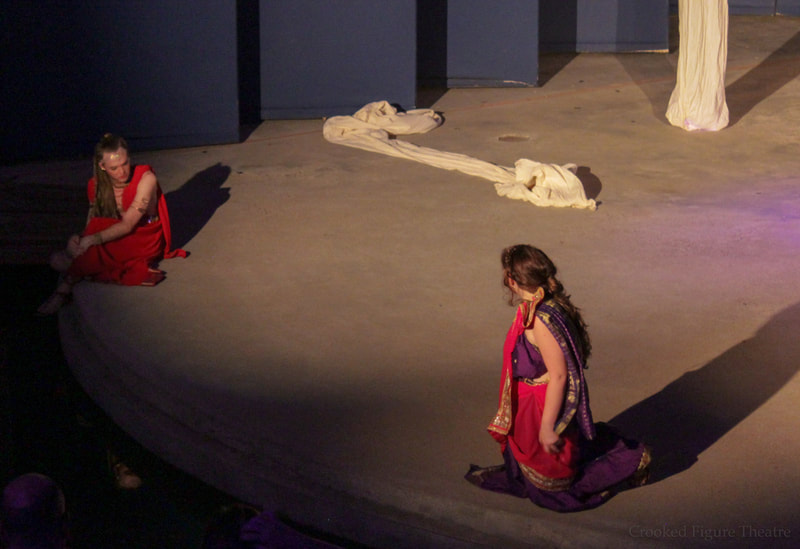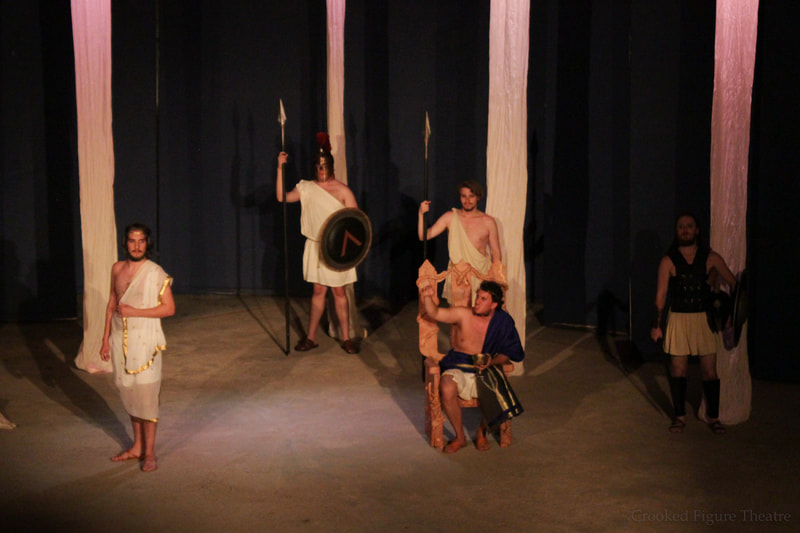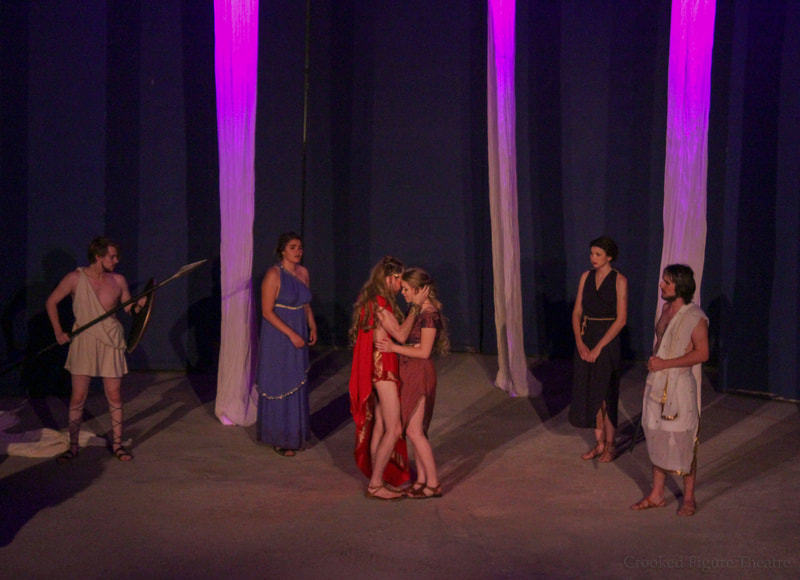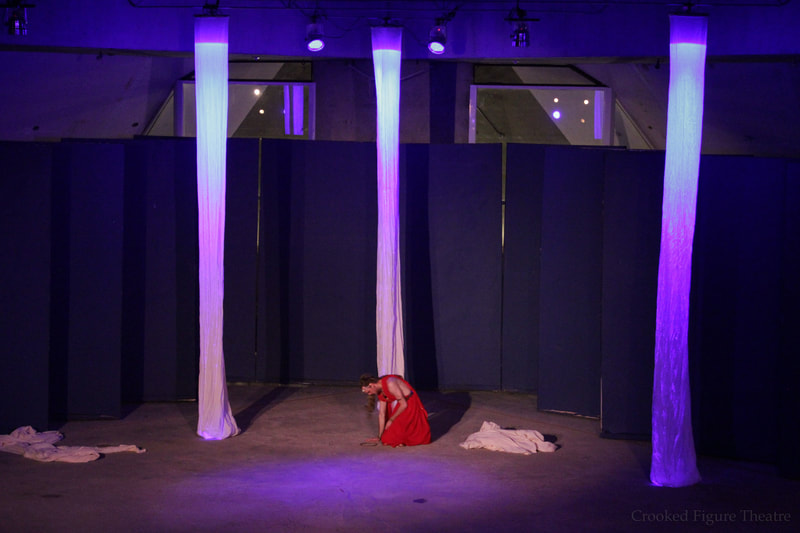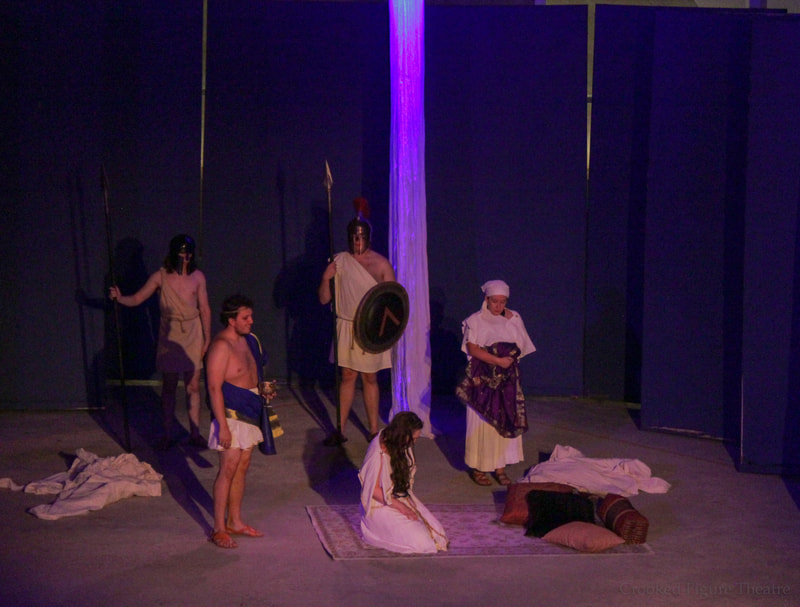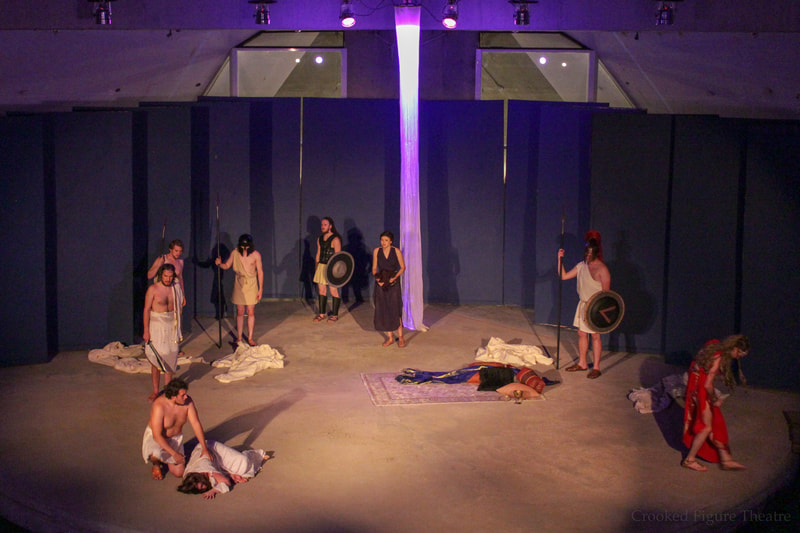Christina Gutierrez-Dennehy
Hecuba opens in the moments after the once-great city of Troy has fallen to the Greeks. The fabled Trojan War—caused, depending on whose side you believe, either by a a single act of infidelity or by the greed of an entire nation—lasted ten long years. Hecuba, wife of Priam, late King of Troy, is left to hold together the tatters of her family, her culture, and her sanity in the face of conquest and capture by the Greek King Agamemnon.
Hecuba is a story about how we tell stories—who controls the narrative; who gets to claim authority. Mythic versions of the Trojan War usually focus on the immense strength of the Greeks or on the fallen glory of Troy. Rarely in these myths do we hear the voices of individuals, and even more rarely do those voices come from women. Marina Carr’s deeply violent version of the story creates space for the voices we haven’t heard, but simultaneously complicates what it means to hear those voices. The play’s unique narrative structure—in which characters speak for, with, and often against each other—complicates the notion that there can ever be a “true” version of this story.
Hecuba’s is an unstable world, characterized by violence and drastic change. Throughout the process of working on this play, I was simultaneously drawn to and repulsed by the “new world” promised by the play’s ending. As the play promises, will be a world that has learned the cost of genocide, one in which, as Hecuba wishes, all possibility is possible, and all can be different next time. The reality, however, is that we have failed to learn the lessons that Hecuba’s story offers to us, and the promised “new world”—our own world—is full of far too many instances of hatred, violence, and unimaginable cruelty. I cannot watch Hecuba without wondering about our own position in history, and the stories that will be told of us in the centuries to come. It is with these questions about our own future that I ask you to approach this story of our past. Who will tell our stories? Which voices will be included in those stories, and which will be left out? And what—if anything—will the civilizations of the future learn from the mistakes we make in the past?
Hecuba is a story about how we tell stories—who controls the narrative; who gets to claim authority. Mythic versions of the Trojan War usually focus on the immense strength of the Greeks or on the fallen glory of Troy. Rarely in these myths do we hear the voices of individuals, and even more rarely do those voices come from women. Marina Carr’s deeply violent version of the story creates space for the voices we haven’t heard, but simultaneously complicates what it means to hear those voices. The play’s unique narrative structure—in which characters speak for, with, and often against each other—complicates the notion that there can ever be a “true” version of this story.
Hecuba’s is an unstable world, characterized by violence and drastic change. Throughout the process of working on this play, I was simultaneously drawn to and repulsed by the “new world” promised by the play’s ending. As the play promises, will be a world that has learned the cost of genocide, one in which, as Hecuba wishes, all possibility is possible, and all can be different next time. The reality, however, is that we have failed to learn the lessons that Hecuba’s story offers to us, and the promised “new world”—our own world—is full of far too many instances of hatred, violence, and unimaginable cruelty. I cannot watch Hecuba without wondering about our own position in history, and the stories that will be told of us in the centuries to come. It is with these questions about our own future that I ask you to approach this story of our past. Who will tell our stories? Which voices will be included in those stories, and which will be left out? And what—if anything—will the civilizations of the future learn from the mistakes we make in the past?
